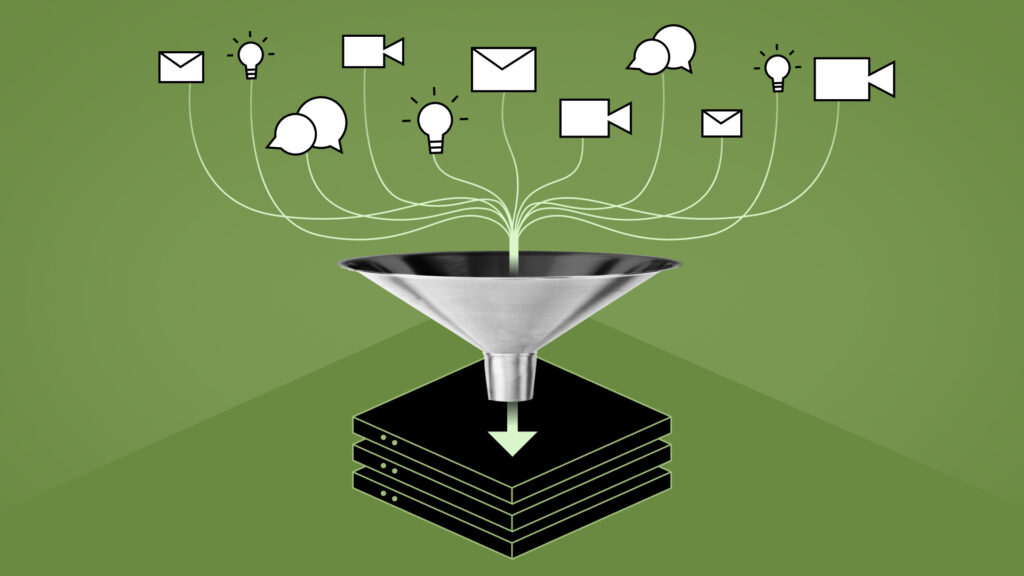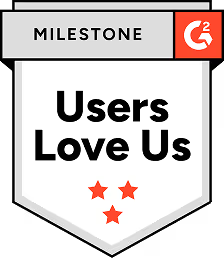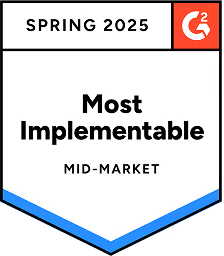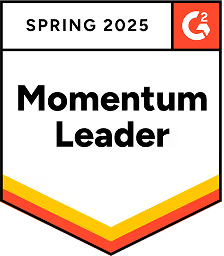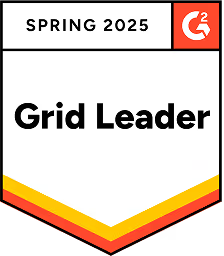AI cold calling 101: What you need to know

TL;DR
We all know that cold-calling probably wouldn’t crack the top 5 of a rep’s “favorite tasks” lists (let alone make the list at all). But, alas, we also know that it’s a very necessary means to an end. The good news? AI – when used correctly – can make cold-calling infinitely easier for your teams. From automating tedious processes like call routing and voicemail drops to providing intelligent insights that improve personalization and prioritization, AI can be a true force multiplier - reducing time sinks while boosting productivity and conversions.
Key takeaways from the article:
- Understanding AI cold calling: AI cold calling involves using AI to automate and enhance various aspects of the cold calling process, from research and dialing to analysis and follow-up – all without replacing human interactions.
- How to use AI for cold calling: We outline a number of different ways in which AI can be used to streamline cold-calling processes, including lead prioritization, parallel dialing, personalized scripts, voicemail drops, multi-channel follow-ups, call transcription, sentiment analysis, and more.
- Benefits and challenges: While AI offers significant advantages like increased efficiency, personalization, and data-driven insights, it also presents challenges such as data dependence, regulatory compliance, and the need for human oversight.
- Assessing your need for AI: The article provides a self-assessment guide to help determine if AI is right for your cold calling strategy, considering factors like the importance of calls in your outreach and current pain points in your process.
- Best practices for AI implementation: Key recommendations include using AI to enhance rather than replace human performance, focusing on sales-ready leads, staying compliant with regulations, and prioritizing data quality for optimal AI performance.
If you're in sales, cold calling is likely a regular part of your workflow – as well as a consistent source of stress and frustration. Making hundreds of calls, leaving voicemails that rarely get returned, and struggling to get decision-makers on the line can make cold calling feel like an uphill battle. Wouldn’t it be great if there was something out there that could make this process easier for you?
(Dramatic pause.)
Enter: AI. Thanks to the rapid evolution of AI technology over the past couple of years, AI has opened up new frontiers for cold calling, allowing sales pros to be far more strategic, personalized, and effective with their outreach than ever before.
In this piece, we'll dive into the various ways AI can supercharge your cold-calling efforts by automating tedious tasks, providing intelligent insights, and boosting your team's productivity.
If you're looking to modernize your prospecting motion, this is a must-read.
What is “AI cold calling”?
“AI cold calling” refers to the increasingly common practice of using AI technology to automate tasks traditionally associated with cold calling, such as:
- Conducting research to get data and insights about prospects;
- Dialing numbers;
- Deciding what times are best to call prospects;
- Analyzing call recordings to extract valuable information about the prospect and/or support training.
At a high level, the primary applications of AI in cold calling today center around automating routine tasks, enhancing prospect data and personalization, powering conversation intelligence, and improving training through AI analysis.
It’s important to note that leveraging AI in your cold-calling process isn’t supposed to replace human interactions. Instead, it’s supposed to help enable and optimize your team’s cold-calling efforts by doing things like finding more high-intent leads for them to contact or generating personalized scripts to use for each call.
{{cta-1}}
12 ways businesses can use AI for cold calling
In recent years, the market has seen a proliferation of AI-powered cold calling tools. However, many of these solutions merely scratch the surface of AI's potential, often focusing on isolated features such as power dialing or rudimentary script generation. While these tools offer some benefits, they still require significant manual effort from sales representatives. The true power of AI lies in its ability to transform the entire cold-calling process from end to end.
Below, we’ve provided you with a high-level overview of 12 key activities that true AI-powered dialers (*cough* like Regie.ai’s own AI Dialer *cough*) can take over for your team. And — if you want to dive deeper into any of these use cases — make sure to check out our article on this very topic: “How to use AI for cold calling: 12 ways to transform your call channel."
- Prioritizing high-intent leads: AI shines in situations where it’s required to analyze mountains of data and tease out little details and insights that ultimately help us do our jobs better. That’s why AI is a game-changer when it comes to identifying and prioritizing high-intent leads. Specifically, AI can monitor for positive intent signals from prospects, ensuring that your team’s always focusing its efforts on the warmest, most receptive prospects. Whether it's existing contacts showing renewed interest, new prospects at familiar accounts, or completely fresh, net-new opportunities, AI can curate a call list of the most engaged and receptive leads. This process helps reps reach out to people who are ready to talk, increasing the likelihood of productive conversations and potential conversions.
- Automating multi-line or "parallel" dialing: AI-powered parallel dialers can call multiple numbers simultaneously, significantly boosting productivity. This technology increases the likelihood of getting more connects, allowing reps to spend less time listening to dial tones and more time having meaningful conversations with prospects who are actually ready to talk. It also provides valuable data and insights for analyzing the effectiveness of cold-calling strategies.
- Kicking off calls with personalized intro lines: AI can detect if a call pick-up is human or an answering machine; if the former, some advanced AI solutions like our AI Dialer can rapidly read off a short intro line that’s personalized to the specific prospect’s situation – and read it in your rep's voice. This eliminates the awkwardness of dreaded “dead air” or having robotic pre-recorded messages, ensuring a smooth and professional start to each call.
- Generating hyper-personalized call scripts: AI also can be used to generate hyper-personalized call scripts for each prospect on the fly. Specifically, the AI can review all of the prospect’s data and then synthesize that information into a cohesive and customized script. This is particularly useful for parallel dialing, when a rep is making multiple calls at the same time: once they start their call tasks, the AI can generate a customized call script for each prospect. When one picks up, the rep can use that script to pick up the conversation after the AI delivers the intro line. This enables your rep to pick up where the AI leaves off and continue the conversation seamlessly.
- Leaving personalized voicemail drops: AI can even streamline the process of personalizing and leaving voicemail drops. Specifically, it can analyze prospect data, generate highly personalized and contextual voicemail drops, and deliver them using the rep's actual voice. This combination of content and voice personalization can grab prospects' attention and increase the chances of a response – either as a call-back or a reply via another channel. And, by having the AI leave the voicemails – rather than your reps – you’re saving them time that they can then reinvest into other, more high-value activities.
- Orchestrating multi-channel follow-ups: AI makes “combo prospecting” easier than ever for sales teams by creating a seamless, consistent experience for prospects across all touchpoints. Specifically, it can help ensure messaging coherence, optimize outreach channels and timing, and provide cross-channel tracking for a holistic view of prospect engagement. AI can help transform cold calling into a critical part of a dynamic and comprehensive outreach strategy and allow teams to adapt to different channels and prospect behaviors – thereby enabling us to reach out more effectively and intelligently than ever before.
- Transcribing calls: AI can also help accurately convert speech to text and summarize key points from calls. This allows reps to focus on the conversation rather than taking notes, and provides a valuable resource for managers when it comes time to reviewing and improving reps’ performance. AI can also surface common customer concerns, helping reps develop better responses and anticipate potential roadblocks.
- Providing sentiment & conversation analysis: Using natural language processing (NLP), AI can evaluate words and phrases spoken on a sales call to analyze the prospect's tone, sentiment, and any pain points/needs that were referenced during the conversation. This process helps uncover valuable insights into the prospect's interests and motivations, giving reps clear guidance in terms of how to personalize future touchpoints. AI can also provide summaries that tease out key insights about conversations for managers to review and use as coaching opportunities.
- Upskilling sales reps through call insights & training: AI can evaluate sales calls across multiple dimensions like rapport building, objection handling, and product knowledge. It can uncover each rep's strengths and weaknesses, making it easier for managers to make personalized recommendations for professional development. This data-driven approach to training can significantly improve the overall performance of the sales team.
- Streamlining CRM updates & task management: AI can transform the way we handle CRM updates and task management for our call channel, turning a once time-consuming chore into an automated, efficient process. Specifically, AI can log calls, autonomously categorize cal outcomes, create timely follow-up tasks, and generate comprehensive activity reports. This automation not only ensures accurate, real-time CRM updates but also frees up valuable time for sellers to focus their efforts on more high-value activities.
- Ensuring brand consistency & alignment: AI can help maintain brand consistency by drawing from a centralized repository of approved messaging, ensuring all outreach aligns with current brand guidelines. It can generate dynamic scripts that are personalized for each prospect while maintaining core brand messages and value propositions. As brand messaging evolves, AI can immediately incorporate these changes across all outreach channels.
- Unifying your tech stack: Advanced AI-powered dialer platforms offer a unified solution to the fragmentation that often plagues sales teams. By integrating various tools into a single, cohesive workflow, these platforms provide a centralized hub that can streamline operations and enhance efficiency. This consolidation not only cuts down on direct software costs, but also boosts overall sales performance by allowing your team to work more efficiently and effectively. With all necessary functions accessible from one place, your team can focus more of their time and energy on the activities that actually move the needle.
Hopefully, you’ve gotten a pretty clear picture of how transformative AI could be for your call channel. Most importantly, AI can take on many of the time-consuming, repetitive tasks that often bog down sellers, allowing your team to focus their energy on what truly matters: building relationships and closing deals. However, like any powerful tool, AI comes with its own set of advantages and challenges. Let's explore these further to understand how we can leverage AI most effectively in our cold-calling strategies.
{{cta-1}}
Benefits & challenges of using AI for cold calling
As AI technology continues to reshape the sales landscape, it's crucial to understand both the advantages and potential hurdles of incorporating AI into your cold-calling strategies. Let's explore the key benefits and challenges to help you make an informed decision about leveraging AI in your sales processes.
Benefits to consider
As we’ve seen so far, AI offers a number of significant benefits that can help transform your cold-calling efforts. Let's explore them more here:
- Unprecedented efficiency and productivity: AI automates time-consuming tasks like dialing, leaving voicemails, and logging call outcomes. This frees up reps time so they can focus on more high-value activities, potentially increasing the number of meaningful conversations they can have each day.
- Continuous optimization: One of AI's most powerful features is its ability to learn and improve over time. Unlike static systems, AI-powered platforms evolve based on real-world results:
- Performance analysis: AI can analyze thousands of calls, identifying patterns that lead to successful outcomes.
- Predictive lead prioritization: As more data is collected, AI refines its ability to predict which leads are most likely to convert.
- Trend detection: AI can spot emerging trends in prospect behavior or preferences, allowing your team to adapt strategies quickly.
- A/B testing at scale: AI can continuously run and analyze A/B tests across various elements of your outreach, from subject lines to call language, optimizing based on results. This continuous improvement cycle means your cold calling strategy becomes more effective over time, adapting to changing market conditions and prospect preferences.
- Hyper-personalized outreach: AI can rapidly analyze prospect data from various sources to generate personalized scripts, intro lines, and voicemail drops. Additionally, solutions like Regie.ai’s AI Dialer also have the ability to generate this kind of outreach in your rep’s actual voice – this helps your team add another layer of customization to your cold calling strategy without adding to your reps’ workloads. Taken together, this level of customization can significantly improve engagement rates and the relevance of each interaction.
- Intelligent lead prioritization: By integrating with CRM systems and analyzing intent and engagement behaviors, AI can quickly assess and prioritize prospects based on their likelihood of conversion. This makes it easier to focus your team's time and energy on the most promising prospects, thereby maximizing resource allocation and ROI.
- Omnichannel strategy optimization: AI can orchestrate follow-up actions across multiple channels (e.g., email, social media, etc.) based on call outcomes, creating a cohesive, consistent outreach strategy that’s personalized to each prospect and their behaviors.
- Real-time insights and coaching: AI can provide instant call transcriptions, sentiment analysis, and performance scoring, offering valuable insights for immediate improvements and targeted coaching.
- Reduced human error: AI can automate various aspects of the cold calling process, which can help reduce the frequency of human errors such as misdialing or overlooking potential leads. This helps ensure that your team reaches the right people with accurate information, leading to a smoother and more professional prospecting experience.
- Data-driven insights: AI's ability to transcribe calls, analyze conversation sentiment, and extract key discussion points provides valuable insights into customer concerns and preferences. These insights can inform product development, refine sales strategies, and help anticipate potential objections in future calls.
Challenges to consider
While AI brings numerous benefits to cold calling, it's important to approach its implementation with eyes wide open. Like any transformative technology, AI comes with its own set of challenges to consider. Let's dive into some common challenges and explore practical solutions to address them:
- Data dependence: As with anything else, the outputs you get are only as good as the inputs you provide. AI can only analyze what you give it. So, if the data you feed into the system isn’t accurate or complete, it’ll affect the effectiveness of your cold-calling efforts. For instance, it can lead to inaccurate targeting and personalization, which – in turn – can reduce the success of your campaign.
- Potential solution(s):
- Regularly audit and clean your CRM data;
- When necessary, use data enrichment tools to help fill in data gaps (for example, the Regie.ai AI Dialer gives you access to 200 million+ contacts);
- Implement strict data entry protocols for your team; and,
- Consider using AI-powered data validation tools to catch errors.
- Potential solution(s):
- Adapting to regulatory changes: As AI technology evolves, so do the regulations surrounding its use in sales and marketing. Staying compliant with current and emerging laws requires constant vigilance.
- Potential solution(s):
- Verify that your AI vendor complies with relevant data protection regulations like CCPA, GDPR, HIPAA, or industry-specific standards;
- Set up alerts for regulatory updates in your industry; and,
- Conduct regular training sessions to help your team stay up to date on regulations.
- Potential solution(s):
- Lack of nuance: Nuance is essential in human conversations. Humor, sarcasm, empathy, understanding and non-verbal cues are all part of effective communication. However, AI struggles with these subtleties, meaning its transcriptions of calls aren’t always accurate. In such cases, you may have to listen to the call again to get the full context of the conversation.
- Potential solution(s):
- Use AI as a starting point, but have human reps review important calls to ensure transcriptions, scoring, etc. is all accurate; and,
- Combine AI analysis of calls with human insights for a more complete picture.
- Potential solution(s):
- Target market/segment is too small: As we mentioned earlier: cold calling is a numbers game, and it’s a game that AI plays exceptionally well. AI-powered dialing is meant to scale call volume and help your team reach more people than they could on their own. This also means that if your team’s targeting a very small, niche market, it’s highly likely that you’ll quickly run out of opportunities for the AI to work through. If that happens, you could see minimal (if any) ROI.
- Potential solution(s):
- Conduct an assessment of your business to determine whether an AI-powered solution is really a good fit. You can use the assessment below to help kickstart this process.
- Potential solution(s):
{{cta-1}}
Assessment guide: How to determine whether you really need AI for cold calling
Call us biased, but we feel pretty strongly that AI should be part of everyone’s cold-calling strategy. That said, AI solutions aren’t necessarily for everyone – there’s a lot of horsepower behind these platforms, and there’s nothing worse than finding out your team invested a lot of time and money on a Cadillac-level solution when all you needed was a Prius.
Below, we’ve put together an informal type of assessment to help you determine if AI is right (or even needed) for your cold-calling strategy.
Questionnaire
- How important is the call channel in your overall outbound prospecting strategy?
- It's our primary or most important channel
- It's part of our mix but not the most important
- It's a minor (or non-existent) part of our strategy
- Are your reps spending more time on administrative tasks than actually talking to prospects?
- Yes, constantly
- Sometimes
- Rarely or never
- How consistent is your team's performance with cold calling across different reps?
- Highly variable
- Somewhat consistent
- Very consistent
- How often do you struggle with lead prioritization?
- Frequently
- Occasionally
- Rarely or never
- How personalized are your cold calls currently?
- Generic scripts for all prospects
- Some basic personalization
- Highly personalized for each prospect
- How effectively are you using data to inform your cold-calling strategy?
- We don't really use data
- We use some data, but it's not comprehensive
- We have a data-driven approach
- How quickly can you adapt your cold calling strategy based on results?
- It takes weeks or months
- We can adapt within a week
- We can make real-time adjustments
- How often do you miss opportunities due to poor timing or lack of follow-up?
- Frequently
- Occasionally
- Rarely or never
- How efficiently are you able to train and onboard new sales reps?
- It's a long and challenging process
- It's okay, but could be better
- We have a quick and effective process
Questionnaire scoring
- A’s: 2 points each
- B's: 1 point each
- C's: 0 points each
How to interpret your score
- 0-5 points: You're likely managing your cold calling process effectively without AI. While AI could potentially enhance your operations, it may not be an urgent need, especially if calls aren't a critical part of your strategy.
- 6-11 points: Your cold calling process could benefit from AI in specific areas. Consider implementing AI solutions to address your main pain points, particularly if calls are an important part of your outreach.
- 12-18 points: Your cold calling strategy would likely see significant improvements with AI implementation. It's worth seriously exploring AI solutions to optimize your process, especially given the importance of calls in your outbound strategy.
If you've scored in the moderate to higher ranges, here are some next steps to consider:
- Identify your biggest pain points in the cold calling process.
- Research AI solutions that specifically address these challenges.
- Evaluate the potential ROI of AI implementation against your current process.
- Assess your team's readiness for adopting new technology.
Remember, this self-assessment is just a starting point. The decision to implement AI should also consider factors like your budget, team size, technological readiness, and specific business goals. By carefully considering each element, you’ll be in a better position to make an informed decision about whether incorporating an AI solution is the right next step for your cold calling strategy.
{{cta-1}}
4 best practices to keep in mind when using AI to cold call prospects
As your team starts to incorporate AI into your cold calling process, it’s important to adopt certain best practices for more effective results.
Best practice #1: Use AI to enhance your employees’ performance, not as a replacement for them.
There are a ton of tasks that these platforms can take off the plates of human workers, so they can do what they do best: get on the phone and work their magic.
AI is capable of performing those tasks really well, but there are also a ton of things that AI can’t do (and probably won’t ever be able to do). For starters, AI isn’t good at doing things that require understanding nuance, like:
- Detecting human emotions;
- Building rapport and trust with prospects;
- Adjusting a script based on nuanced human interactions.
For tasks like these (and more), you’ll still need your human talent.
AI can do a lot, but so can your human employees. We believe that the best way to leverage AI technology in sales – whether for cold-calling or otherwise – is in conjunction and collaboration with your human talent, where the AI handles repetitive tasks and data analysis, while your team handles the conversations and rapport-building that’s so crucial to any successful sales campaign.
Best practice #2: Focus your AI’s efforts on sales-ready leads.
Boost your chances of closing deals by contacting people who are most likely to buy. These types of leads can be people who fit your target ICP, or who have shown interest by taking actions like downloading ebooks, signing up for demos, or subscribing to a free trial.
Use AI to identify these sales-ready prospects and configure it to create personalized scripts and dial them. By continually refining its models based on prospects’ intent signals and engagement behaviors – along with any extra data you feed it – your AI tech can learn to prioritize hot leads even more effectively.
Best practice #3: Stay up-to-date with regulations in order to maintain compliant usage of your AI technology.
We know that this goes without saying, but anything you do within the realm of cold calling should comply with the existing Telephone Consumer Protection Act (TCPA) regulations. These include:
- Obtaining consent from the called party;
- Honoring the national “Do Not Call” (DNC) registry;
- Providing the contact information of your business;
- Following call time restrictions; and,
- Allowing the customer to opt out of communications with you.
You also need to stay on top of the AI laws and comply with them to avoid legal issues or heavy fines. Here are a few resources where you can learn more about TCPA regulations and compliance:
- Experian: “Telephone Consumer Protection Act (TCPA) compliance”
- FCC: “Telephone Consumer Protection Act (TCPA)”
- Forbes: “How To Effectively Respond To A TCPA Warning”
- Mailchimp: “Essential TCPA Compliance Checklist for Businesses”
- National Association of Consumer Advocates: “Robocalls & Telemarketing”
- New Media Rights: “Best Practices: How businesses can communicate with individual consumers without violating the Telephone Consumer Protection Act”
- TCN: “The Complete Guide to TCPA Compliance”
Best practice #4: Prioritize data quality.
AI is only as good as the data you feed it. Ensure your contact lists and CRM system are accurate and up-to-date to avoid contacting the wrong people or sending messages containing false information.
Also, go through your systems and clean the data from time to time. Remove incorrect or outdated information for optimal performance of AI.
Final thoughts
As you’ve seen, AI is rapidly reshaping the sales prospecting landscape, and savvy teams are finding powerful ways to leverage AI for streamlining and optimizing their cold-calling efforts. To that end, Gartner predicts that by 2025, 75% of B2B companies will be using AI to support their sales strategies, including cold calling. Even as we’re writing this article in 2024, AI technology continues to evolve at such a rapid pace that this Gartner figure truly doesn’t seem so farfetched.
Though fully automated AI conversations are now off the table, there are still a number of highly valuable applications for incorporating AI technology into your cold-calling workflows. That said, it’s also critical to strike the right balance, letting AI handle automatable tasks while your reps focus on delivering the authentic human rapport that forges lasting business relationships.
Sales is an ever-evolving field, and AI represents the next great frontier. Those who thoughtfully embrace this powerful force while staying true to core relationship-building tenets will be the ones leading the charge.
Did you know we recently launched our new AI Dialer?
Find out how it could completely transform your call channel.
Want to see how our AI Dialer could transform your call channel?
Sign up for the beta waitlist to get a front-row seat to the future of cold calling
FAQs
Read more posts
View all BlogsNeed more help?
If you still have questions, make sure to check out our Help Center: there, you'll find all the tips & advice you'll need to get your team up & running with Regie.ai.

